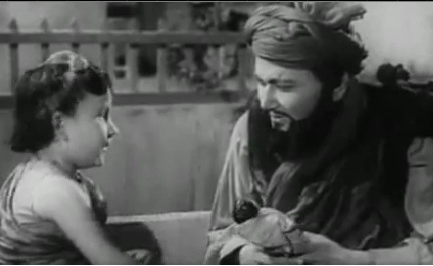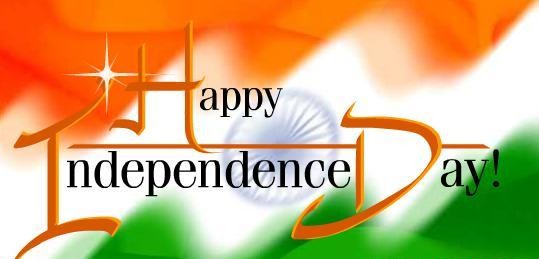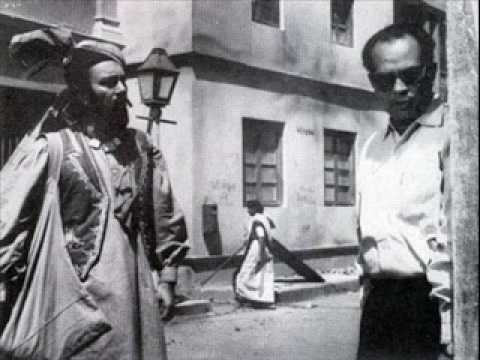In honor of India’s 67th Independence Day on August 15th, we offer the lyrics and English translation to a patriotic classic from Kabuliwala (1961): ai mere pyaare vatan.
Inspired by a Tagore short story of the same name, Hemen Gupta’s Kabuliwala (1961) narrates the story of a dry fruit seller named Rehman (played by Balraj Sahni) who leaves Afghanistan to come do business in India. Missing the daughter he was compelled to leave behind in his homeland, Rehman finds comfort in befriending a young Bengali girl named Mini in Calcutta.
This emotionally stirring film is accompanied by an equally beautiful soundtrack composed by Salil Chowdhury and penned by Prem Dhawan. By all accounts, the most memorable song from this soundtrack is ai mere pyaare vatan. Sung with incredible pathos by Manna De, this song has become one of the filmi world’s greatest contributions to the oeuvre of Indian patriotic music. The prominence that this song has gained in the desh-bhakti genre of Indian music is somewhat ironic given its context in the film: it is picturized on Rehman, an alienated Pathan in India who yearns for his homeland of Afghanistan.
In the sphere of Hindi film music, ai mere pyaare vatan is considered one of the most beautiful expressions of love for one’s homeland–a universal force that can transcend all cultural boundaries. On this special day, let us embrace the patriotic spirit of these lyrics and remember always to treat our homelands with honor, love and respect.
-Mr. 55

Chhabi Biswas befriends a young girl who reminds him of his daughter back home in Afghanistan in the Bengali version of Kabuliwala (1957)
Aye Mere Pyare Watan: Lyrics and Translation
ai mere pyaare vatan, ai mere bichhDe chaman
Oh my dearest homeland, oh my lost garden!
tujh pe dil qurbaan
I shall sacrifice my heart for you.
tuu hii merii aarzuu, tuu hii merii aabruu
You are my desire, you are my honor.
tuu hii merii jaan
You are my life.
tere daaman se jo aaye un havaao.n ko salaam
I shall salute the winds that pass through your foothills.
chuum luu.n mai.n us zubaa.n ko jis pe aaye teraa naam
I shall kiss those lips that take your name.
sab se pyaarii subaah terii sab se ra.ngii.n terii shaam
You have the most beautiful of dawns and the most colorful of evenings.
tujh pe dil qurbaan
I shall sacrifice my heart for you.
maa.n kaa dil ban ke kabhii siine se lag jaataa hai tuu
Sometimes you cling to my chest as my mother’s heart,
aur kabhii nanhii.n sii beTii ban ke yaad aataa hai tuu
and sometimes I remember you as my little daughter.
jitnaa yaad aataa hai mujhko utnaa taDpaataa hai tuu
The more I remember you, the more you torment me.
tujh pe dil qurbaan
I shall sacrifice my heart for you.
chho.D kar terii zamii.n ko duur aa pahu.nche hai.n ham
Having left your land, I have arrived somewhere far from home.
phir bhii hai yahii.n tamannaa tere zarro.n kii qasam
Swearing by every particle of your essence, I still harbor the desire
ham jahaa.n paidaa hue us jagah pe nikle dam
to take my last breath where I was born.
tujh pe dil qurbaan
I shall sacrifice my heart for you.
ai mere pyaare vatan, ai mere bichhDe chaman
Oh my dearest homeland, oh my lost garden!
tujh pe dil qurbaan
I shall sacrifice my heart for you.
Glossary
vatan: homeland; bichhaDnaa: to be separated, lost; chaman: garden; qurbaan: sacrifice; aarzuu: desire; aabruu: honor; daaman: foothills; zubaa.n: tongue, lips, language; rangii.n: colorful; siinaa: chest; nanhii.n: little, young; taDpaanaa: to torment; tamanna: desire; zarra: particle; dam: breath.


